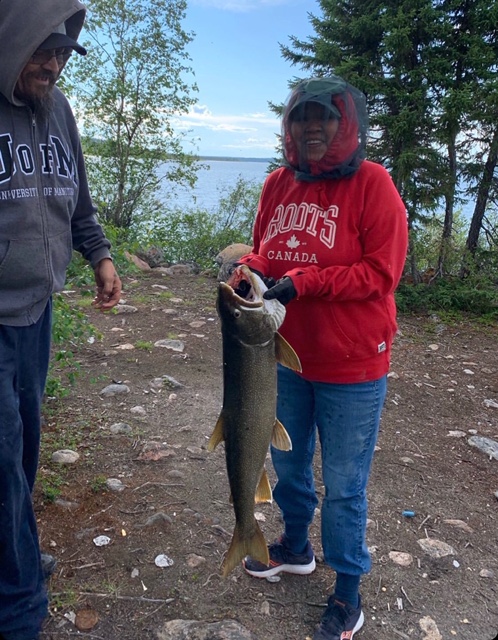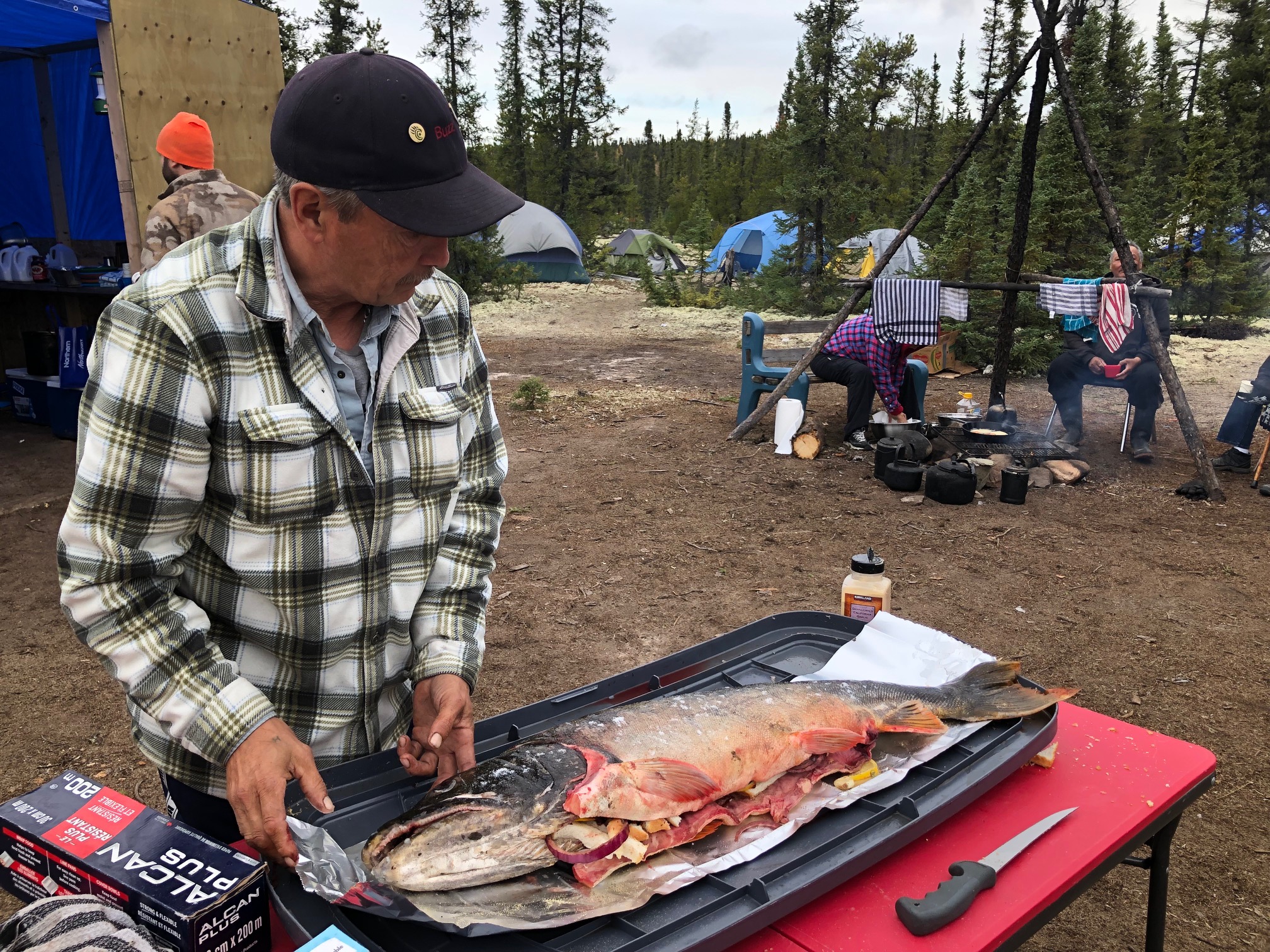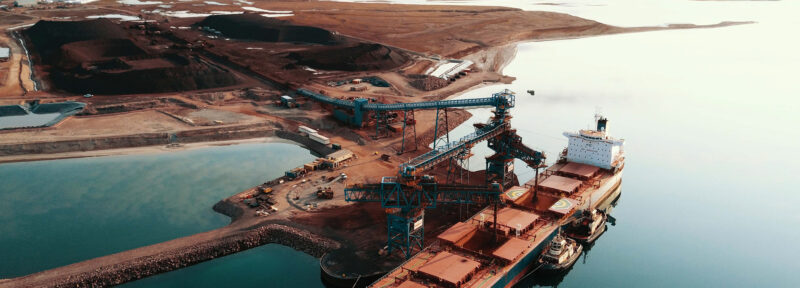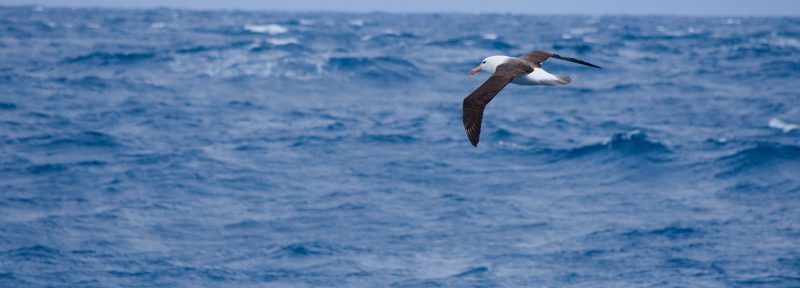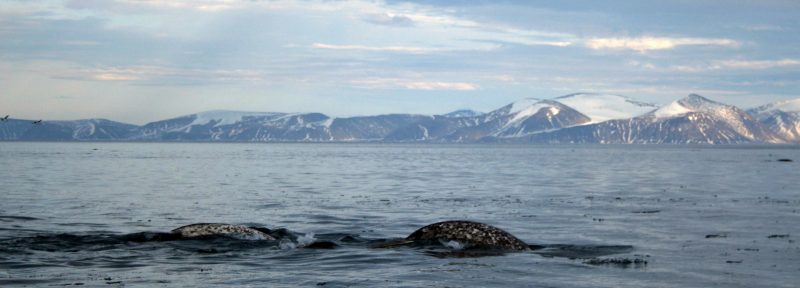Summer Harvesting Program Eases Burden of Pandemic in Tadoule Lake
Project coordinator Caroline Thorassie at Stony Lake.
ᐃᓕᓴᕆᔭᐅᔪᖅ: Stephanie Thorassie
For many northern communities, the Covid19 pandemic has amplified economic and social challenges and increased food insecurity. That prompted Oceans North to work with the Sayisi Dene First Nation at Tadoule Lake in northern Manitoba to launch a new program that supported local harvesters in providing hundreds of pounds of fish to community members.
The project began in early May 2020 with discussions between Oceans North and Ernie Bussidor, a community leader in Tadoule Lake and executive director of the Seal River Watershed Initiative, about the idea of offering financial support to harvesters who would provide healthy, nutritious food to the community.
Indigenous Elders report that land and harvesting skills are declining in the community, like in so many, and that such knowledge is not being passed along to the next generations as it once was. This observation echoes the findings of Canada’s Truth and Reconciliation Commission, which found that the loss of land and harvesting skills was one of the main impacts of residential schools.
Community leaders and elders were extremely positive about our proposal. Oceans North worked with Ernie to hire a local project manager who was well-known and respected and could ensure the success of the harvesting program. Caroline Thorassie, a community member, took on the task of organizing the program and worked hard to advertise it, including using social media like Facebook, as well as popular physical message boards in the community.
Ernie Bussidor cleans fish at the Tadoule Lake stewardship summit.
ᐃᓕᓴᕆᔭᐅᔪᖅ: Felix Meza
Caroline hired four fishers from the community. Nets and fishing gear (three nets per community project, ropes, crates and sideline) were purchased in Winnipeg and flown to the community in early June. From July through September, the harvesters traveled to the lakes, set nets, harvested fish, cleaned and then distributed the fish to community members.
Fishers went out to the lakes around the community once a week on two-day fishing trips. On day one, fishers set nets, and returned early the next day to collect the nets and fish for cleaning and distribution. This schedule was sometimes adjusted according to the weather.
Mike Duck, a harvester for the project, said a significant amount of work went into harvesting and distributing fish to his community. He explained that the best fishing in the area is at Stony Lake – a one-hour drive from the community, accessible only by driving on the eskers. Sand eskers run continuously for miles and are natural travel routes for wildlife and for the community. Once the harvesters arrived at the lake, they had to travel another half hour to get to the best fishing spots.
Harvesters were able to catch lake trout, white fish, northern pike and pickerel. Lake trout is highly prized by community members as a rich, fatty fish that offers more sustenance than the more popular pickerel that is popular in southern Manitoba. After the drive and boat rides in and out of the fishing spots, harvesters gutted and cleaned the fish the same day as they were caught.
“Tadoule has a history of fishing and hunting and a small group of us are providers to the community,” Mike said. “Fishing is part of our community culture and identity — to be on the land and provide for our communities.”
The criteria for distributing the fish were established by the fishers, project manager and community leaders. For example, elders and community members who were unable to go out on the lakes were prioritized. The harvesters also divided the community into three different areas for distribution purposes: south end, north end and middle of town.
Hundreds of pounds of fish were delivered to community members during the summer. By fishers’ accounts, it is estimated that roughly half of the community benefited from the program. In total, there were approximately 12, two-day fishing trips, and nets were set every trip, depending on weather.
Community leaders said the program was a very positive experience, not only for the harvesters but also for community members who benefited from access to nutritious food or were able to share in a traditional experience. Next year, Mike would like to partner with the local high school to introduce students to harvesting. Hands-on, practical experience will help the next generation to develop skills to support greater food security in their community for years to come.
This program compliments ongoing efforts to establish the Seal River Watershed as an Indigenous Protected Conservation Area. The Sayisi Dene of Tadoule Lake are working on an alliance with neighbouring Inuit and Cree communities to purse this protected area as a means to secure greater management and conservation over their traditional lands. In other places, such as Arctic Bay, harvesting programs have been combined with stewardship, monitoring and guardian programs to support protected areas.
Felix Meza is a consultant with Oceans North who assists with conservation projects in northern Manitoba.

